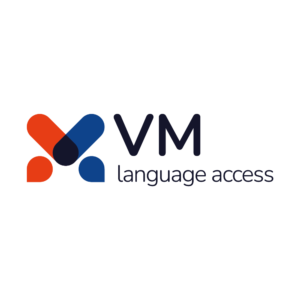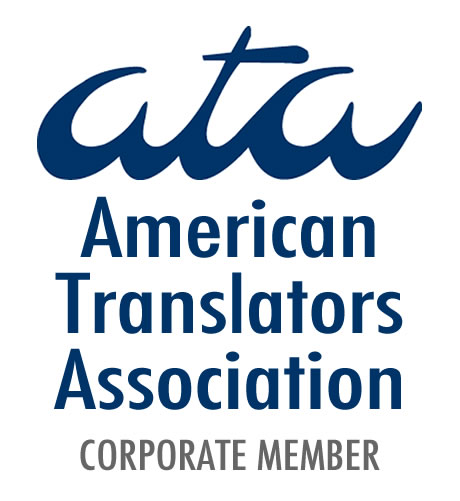
The Importance of Translation in Cross-Cultural Business Negotiations
When conducting business in today’s globalized world, effective communication is more important than ever. However, language barriers can make even the most straightforward negotiation difficult. In cross-cultural business negotiations, translation services are crucial to bridge the gap between parties from different linguistic and cultural backgrounds. The right translation not only ensures that both sides understand each other but also fosters stronger relationships, minimizes risks, and opens the door to new business opportunities. In this article, we’ll explore the importance of translation in cross-cultural business negotiations and how it impacts overall business growth and success.
The Challenges of Cross-Cultural Business Negotiations
Before delving into how translation services help businesses navigate these challenges, it’s important to understand the obstacles that cross-cultural negotiations present.
Language Barriers
Language differences are one of the most obvious challenges in cross-cultural business negotiations. Even if both parties are fluent in a second language like English, nuances, slang, or idiomatic expressions can still create misunderstandings. In business negotiations, where clarity and precision are paramount, small miscommunications can lead to serious errors—misunderstanding key terms, missing out on essential details, or even inadvertently agreeing to unfavorable terms.
Cultural Differences
Language is not the only barrier in cross-cultural negotiations. Cultural differences play a massive role in shaping communication styles, negotiation strategies, and expectations. For instance, some cultures prioritize directness and brevity in business dealings, while others value formalities, relationship-building, and indirect communication. If one party doesn’t understand the cultural norms of the other, this can lead to tension or even the collapse of negotiations.
For example, in certain Asian cultures, it’s common to go through a series of pleasantries and discussions before diving into the core negotiation, while in many Western cultures, negotiators may get straight to the point. A translator familiar with both the language and cultural norms can make all the difference in ensuring that these differences don’t lead to frustration or confusion.
Building Trust and Rapport
Trust is a key element in any business negotiation, but when crossing cultural and linguistic lines, establishing trust can take longer. When both parties are speaking in a second language, nuances can be lost, and that may affect how trustworthy or sincere the other party seems. A professional translator can help establish trust by not only translating the words but also making sure the tone, respect, and intent come across accurately.
How Translation Supports Clear Communication
In order to ensure that cross-cultural negotiations are successful, communication must be as clear and precise as possible. Translation plays a vital role in this process, bridging the language divide and maintaining clarity.
Bridging the Language Gap
The most direct benefit of translation services is that they bridge the language gap. Translators ensure that the correct message is conveyed without misinterpretation. They help ensure that key terms, agreements, and details are clearly understood by both parties. This minimizes the chances of costly mistakes and misunderstandings.
However, it’s important to note that not all translation tools are created equal. While tools like Google Translate can be helpful for everyday use, they often fall short when it comes to complex business terms, idiomatic expressions, and cultural nuances. Relying solely on machine translation can lead to serious errors. Professional translators are needed to provide the nuance, accuracy, and cultural sensitivity that automatic tools lack.
Maintaining Tone and Intent
One of the most important aspects of effective business communication is ensuring that the tone and intent of the message are preserved. Words alone do not always convey the full meaning of a statement. In fact, body language, voice inflection, and the context in which words are spoken can drastically alter the message. When translating business terms, a professional translator doesn’t just focus on the words; they focus on the underlying message.
For example, in some cultures, it’s impolite to say “no” directly. A skilled translator will convey the same message in a more polite or indirect manner that aligns with the cultural norms of the language they are translating into. This level of nuance can be crucial when negotiating complex deals.
The Business Impact of Effective Translation in Negotiations
Beyond the immediate need for clarity in negotiations, accurate translation has far-reaching business implications that can significantly impact the success of cross-cultural business deals.
Minimizing Risks and Errors
In business, errors in communication can lead to costly mistakes, delays, or even legal consequences. In the case of international contracts or agreements, mistranslation can result in misunderstandings that have significant financial implications. For instance, a poorly translated clause could lead to an unexpected expense or even a breach of contract. Professional translators understand the importance of precision and will work meticulously to ensure that every term and condition is understood by all parties involved.
Translation services can also prevent a range of other risks, such as losing face due to a cultural misunderstanding or being misrepresented in the negotiation process. By providing an accurate and culturally sensitive translation, businesses can avoid these potential pitfalls.
Enhancing Negotiation Outcomes
Effective translation services have the potential to greatly improve the outcome of business negotiations. A professional translator doesn’t just convey words—they help facilitate understanding, smooth over misunderstandings, and ensure that both sides leave the negotiation table feeling heard and respected.
When both sides feel confident that they fully understand the terms of the deal, they are more likely to reach an agreement that benefits both parties. Effective communication, supported by professional translation services, can ultimately lead to more successful, profitable, and long-lasting business relationships.
Why Professional Translators Are Essential in Negotiations
While machine translation tools are improving, they still lack the nuance and cultural sensitivity that a human translator brings to the table. Professional translators are essential in cross-cultural business negotiations for several reasons.
Expertise in Industry-Specific Terminology
Each industry has its own specialized terminology, and legal, financial, and technical sectors often require a deep understanding of these terms to ensure that translations are both accurate and legally sound. For example, a translator with expertise in legal translation will be well-versed in the language and terminology required for translating contracts and agreements. They’ll be able to navigate the complexities of the text, ensuring that all legal nuances are preserved.
Understanding Cultural Nuances
Cultural sensitivity is another crucial reason why professional translators are needed. As mentioned earlier, different cultures have different expectations, negotiation styles, and communication habits. A skilled translator doesn’t just know the language—they know how to interpret the cultural context in which that language is used. They can help prevent misunderstandings by ensuring that communication is clear, respectful, and culturally appropriate.
The Role of Interpreters in Real-Time Negotiations
In addition to translation services, interpreters also play an essential role in cross-cultural negotiations, especially when negotiations are conducted in real time. Interpreting involves converting spoken language from one language to another, which requires a high level of skill, accuracy, and cultural understanding. A trained interpreter can facilitate a smooth, dynamic conversation, ensuring that both parties are actively engaged and understanding each other.
While translation focuses on written language, interpretation is all about verbal communication. In fast-paced negotiations, having a professional interpreter on hand ensures that both sides can communicate seamlessly without losing vital information in the process.
Translation plays a critical role in cross-cultural business negotiations. Without accurate and culturally sensitive translation, misunderstandings, legal issues, and lost opportunities are more likely to occur. By investing in professional translation services, businesses can mitigate risks, build stronger relationships, and ultimately achieve better negotiation outcomes.
Whether you’re dealing with contract agreements, real-time negotiations, or industry-specific terminology, the importance of translation cannot be overstated. As the global business landscape continues to grow, embracing professional translation services is not just an option—it’s a necessity for any company aiming for success in international markets.











